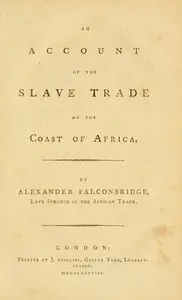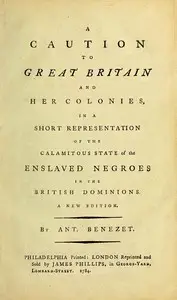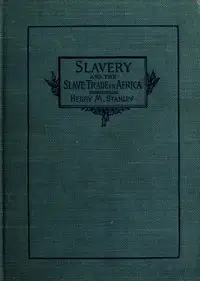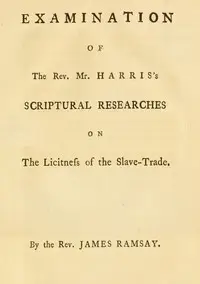"A dissuasion to Great-Britain and the colonies, from the slave trade to Africa" by James Swan, argues that the slave trade goes against moral principles. It condemns the practice as both un-Christian and harmful to society. The book argues against slavery, pointing to the brutal treatment of enslaved people and the damage done to African communities, where war and enslavement take away people and hurt society. The author builds a moral argument, asserting that enslaving other humans is against God's laws, and he uses religious texts to make his points. Further, the work explores the psychological and physical harm that happens to enslaved people when they are moved and forced to plantations. The treatise promotes eliminating the trade, instead suggesting fair business in Africa that respects all people.
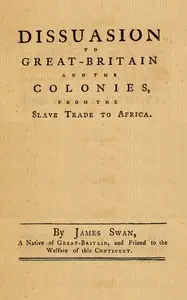
A dissuasion to Great-Britain and the colonies, from the slave trade to Africa
By James Swan
Discover a historic plea to end a cruel practice that contradicts divine laws and destroys lives, urging a nation to choose morality over profit.
Summary
About the AuthorJames Swan was an early American patriot and financier based in Boston in the 18th and 19th centuries. He was a member of the Sons of Liberty and participated in the Boston Tea Party. Swan was twice wounded at the Battle of Bunker Hill, he next became secretary of the Massachusetts Board of War and the legislature. During the time he held that office, he drew heavily on his private funds to aid the Continental Army, which was then in dire need of funds to arm and equip the soldiers who were arriving in Boston from all parts of New England. In 1795, Swan, acting as agent for France, helped refinance the United States’ debt to France, which amounted to 2,024,900 dollars. The US government gave him, as agent for France, newly issued US Government interest-bearing shares equal in value to the amount due on the French debt. Swan then arranged the sale of the shares to investors and the payment of the proceeds to France. In effect, the US replaced its debt to France with the US’s obligations under the new shares owned by private investors. The United States no longer owed money to foreign governments, although it continued to owe money to private investors both in the United States and in Europe. This allowed the young United States to place itself on a sound financial footing. On principles of loyalty, he spent 22 years—more than a quarter of his life—in the Paris Sainte-Pélagie Prison.
James Swan was an early American patriot and financier based in Boston in the 18th and 19th centuries. He was a member of the Sons of Liberty and participated in the Boston Tea Party. Swan was twice wounded at the Battle of Bunker Hill, he next became secretary of the Massachusetts Board of War and the legislature. During the time he held that office, he drew heavily on his private funds to aid the Continental Army, which was then in dire need of funds to arm and equip the soldiers who were arriving in Boston from all parts of New England. In 1795, Swan, acting as agent for France, helped refinance the United States’ debt to France, which amounted to 2,024,900 dollars. The US government gave him, as agent for France, newly issued US Government interest-bearing shares equal in value to the amount due on the French debt. Swan then arranged the sale of the shares to investors and the payment of the proceeds to France. In effect, the US replaced its debt to France with the US’s obligations under the new shares owned by private investors. The United States no longer owed money to foreign governments, although it continued to owe money to private investors both in the United States and in Europe. This allowed the young United States to place itself on a sound financial footing. On principles of loyalty, he spent 22 years—more than a quarter of his life—in the Paris Sainte-Pélagie Prison.

